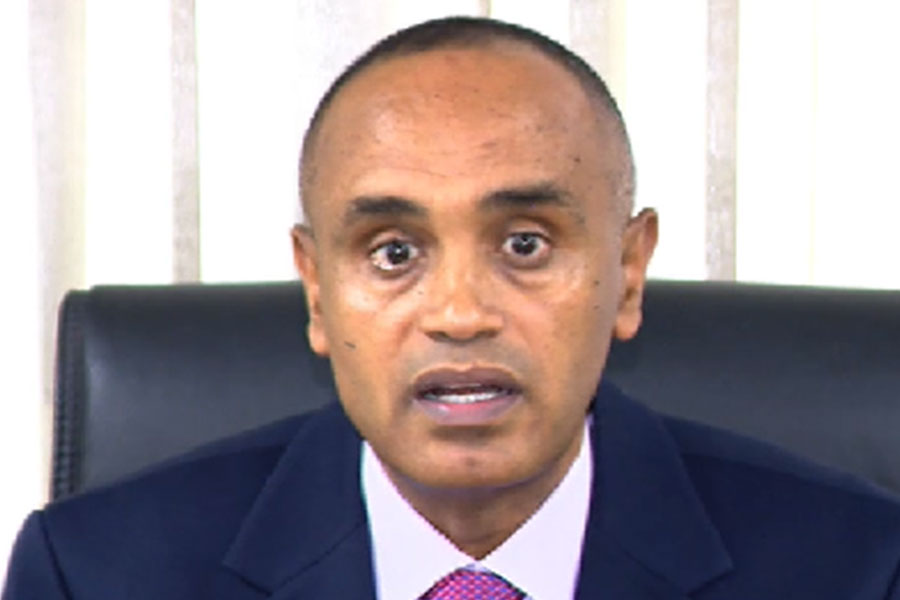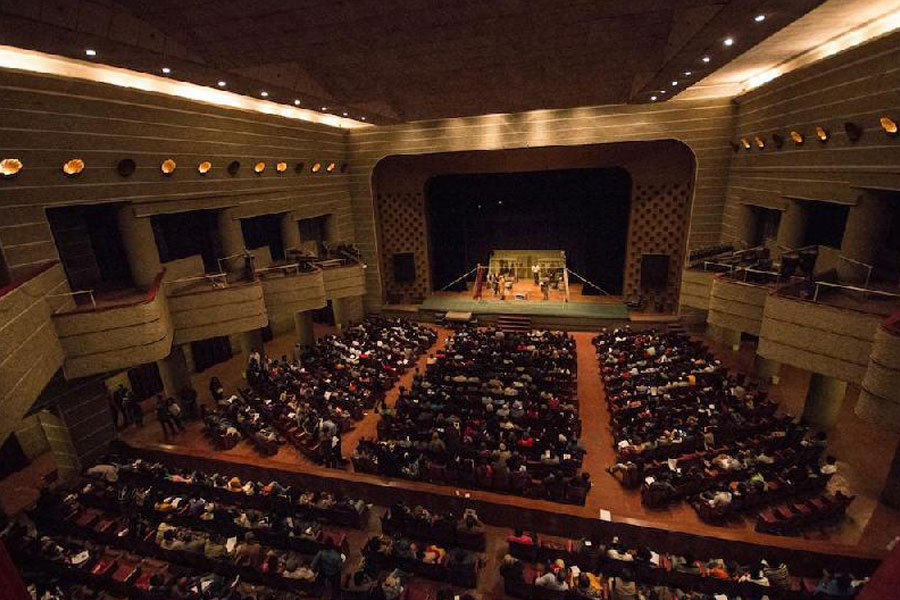
Commentaries | Feb 10,2024
Oct 23 , 2021
By Christian Tesfaye
Rwanda’s Genocide Memorial is one of the most power experiences one can have in terms of understanding the trauma and hardship countries and societies go through.
Like much of Kigali, it is a neatly kept place with modern facilities to help visitors understand what led to the 1994 Rwandan Genocide, how it was carried out and how the country is trying to heal itself from that trauma. It starts with a video presentation of survivors of the genocide recounting stories of what they saw, how they escaped and the relatives they lost.
As it progresses, a building with a circular hallway leads visitors starting from how the trouble started once the Germans came, and then the Belgians, and began classifying everybody in terms of ethnicity: Tutsi, Hutu and Twa. Everyone with over a certain number of cattle was branded Tutsi and the designation was placed in their ID cards. Several massacres and attacks took place way before the genocide in 1994, which was the reason that there were fighters organised in neighbouring Uganda from migrant groups called the Rwandan Patriotic Front (RPF).
Matters escalated following a civil war and during a sensitive peace deal between the Rwandan government and the RPF. The former was co-opted by radical groups who started propagandising against the Tutsi, including the publication of the infamous “The Hutu Ten Commandments.” The visit at the Memorial circles to documentation of the atrocities that were perpetrated against Tutsi and moderate Hutus in the face of international indifference, and then shows the preserved skulls and bones of victims.
The most shocking part of the Memorial is the Children’s Room. It depicts the atrocities committed against them but in contrast to their innocence and resolve against madness. This includes a plaque for a 12-year-old girl named Francine Murengezi Ingabire, just beneath a photo of her smiling wildly. It reads, “Favourite Sport: Swimming, Favourite Food: Eggs and chips, Favourite drink: Milk and Fanta tropical, Best Friend: Her elder sister Claudette, Cause of death: Hacked by machete.”
The majority of children in Rwanda saw someone getting killed or injured. Ninety percent believe that their life is in danger.
The Memorial dodges some issues, such as atrocities committed by the RPF themselves as they took over the country. But overall, it presents a powerful experience to any visitor on the trauma and horror a society can inflict upon itself when social divisions are mishandled by political leaders. It is also a reminder of how neighbours and friends can be weaponised against one another in the absence of a strong social infrastructure that underlines shared political norms and values. It is indeed telling that Rwanda did not have the meticulous planning and scheming (logistical, institutional and sophisticated infrastructures of violence such as extermination camps) for over a million people to be made to perish in a matter of weeks as in Nazi Germany.
The Memorial and today’s Rwanda is also a reminder of how societies can get past their trauma and plan for a better future of economic development and poverty alleviation. It would be too naive to believe that they have figured out everything and the chances of returning to the past are nil. We have found out around the world, with the rise of nativism and extremism, how a few charismatic individuals with the right platform can bring the worst out of groups in society. Rwanda, likewise, has yet to be tested in creating strong democratic institutions and ensuring a peaceful transfer of power.
For all its present challenges, from lack of pluralism to low rate of economic development, however, there is still much to be optimistic about Rwanda. With patience and determinism, it can put the past behind it and become a nation that is safe and full of opportunities for its young population and an example for others.
PUBLISHED ON
Oct 23,2021 [ VOL
22 , NO
1121]


Commentaries | Feb 10,2024

Sunday with Eden | Jun 07,2020

My Opinion | Oct 20,2024

Viewpoints | Oct 01,2022

Radar | Sep 07,2025

Commentaries | May 25,2024

Verbatim | Jan 13,2024

Viewpoints | Jun 03,2023

View From Arada | Mar 19,2022

Fortune News | Feb 24,2024

Photo Gallery | 178780 Views | May 06,2019

Photo Gallery | 168975 Views | Apr 26,2019

Photo Gallery | 159823 Views | Oct 06,2021

My Opinion | 137111 Views | Aug 14,2021
Commentaries | Oct 25,2025

Dec 22 , 2024 . By TIZITA SHEWAFERAW
Charged with transforming colossal state-owned enterprises into modern and competitiv...

Aug 18 , 2024 . By AKSAH ITALO
Although predictable Yonas Zerihun's job in the ride-hailing service is not immune to...

Jul 28 , 2024 . By TIZITA SHEWAFERAW
Unhabitual, perhaps too many, Samuel Gebreyohannes, 38, used to occasionally enjoy a couple of beers at breakfast. However, he recently swit...

Jul 13 , 2024 . By AKSAH ITALO
Investors who rely on tractors, trucks, and field vehicles for commuting, transporting commodities, and f...

Oct 25 , 2025
The regulatory machinery is on overdrive. In only two years, no fewer than 35 new pro...

Oct 18 , 2025
The political establishment, notably the ruling party and its top brass, has become p...

Oct 11 , 2025
Ladislas Farago, a roving Associated Press (AP) correspondent, arrived in Ethiopia in...

Oct 4 , 2025
Eyob Tekalegn (PhD) had been in the Governor's chair for only weeks when, on Septembe...

Oct 25 , 2025 . By YITBAREK GETACHEW
Officials of the Addis Abeba's Education Bureau have embarked on an ambitious experim...

Oct 26 , 2025 . By YITBAREK GETACHEW
The federal government is making a landmark shift in its investment incentive regime...

Oct 29 , 2025 . By NAHOM AYELE
The National Bank of Ethiopia (NBE) is preparing to issue a directive that will funda...

Oct 26 , 2025 . By SURAFEL MULUGETA
A community of booksellers shadowing the Ethiopian National Theatre has been jolted b...